In this article, we’ll explore 5 ways to improve communication skills in kids, providing practical tips to help parents and educators nurture this essential ability.

Effective communication is a vital skill that sets the foundation for a child’s success in school, relationships, and future endeavors. As children grow, helping them develop strong communication skills can boost their confidence, enhance their social interactions, and improve their ability to express ideas clearly. Whether it’s learning to listen attentively, articulate thoughts, or understand non-verbal cues, communication plays a pivotal role in their personal and academic growth.
Welcome to our kitchen to classroom series where we will look at five topics in which the kitchen inspires education. This article will focus on the importance of communication skills both inside and outside the classroom.

Click here to view this and other selections of digital products on the ETI Academy shop!
The five points are:
- Audience
- Word Choice
- Intonation
- Clarity
- Body Language
Get a sneak peak at how to improve your communication skills by watching this video below!
How to Communicate from Kitchen to Classroom
Communication in the kitchen adds to the enjoyment of cooking! Communicating how delicious the meal you ate is one example! It can also be in how you teach someone how to make that recipe into an amazing meal for all to enjoy!
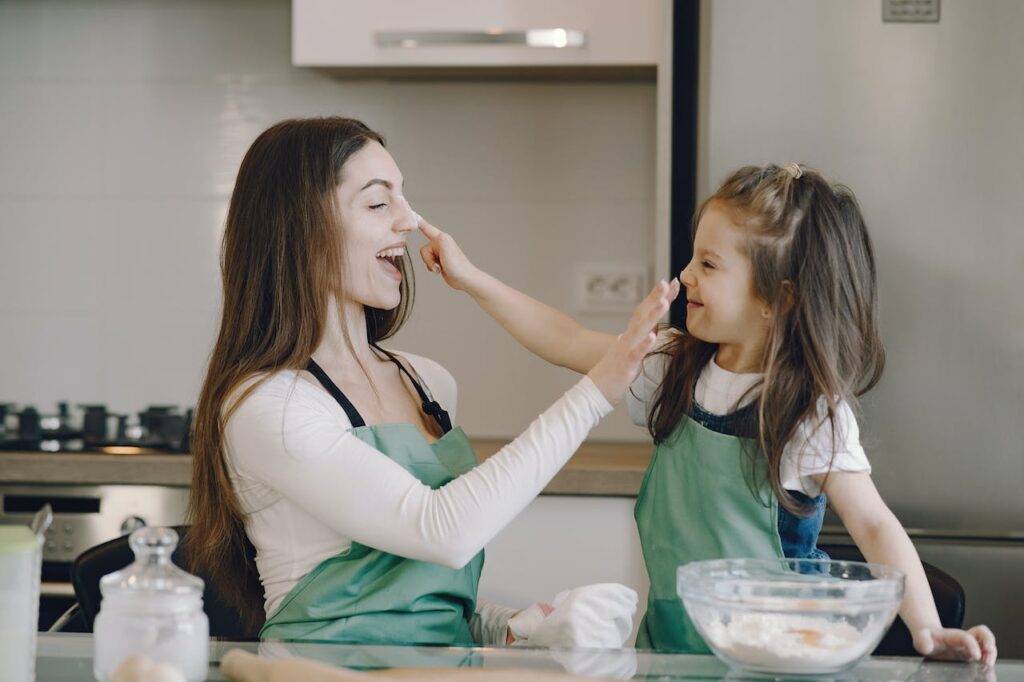
In the homeschool classroom, improving language skills through the four means of communication (listening, speaking, reading, writing) is one of the most important goals for both teachers and students. With the right choice of words, communication in any form will always be at its best.

Tools That Help Improve Communication Skills in Kids
This blog contains Amazon affiliate links to highlighted websites and/ or resources. By clicking on the links and making a purchase we may earn a small commission at no extra cost to you. Click here for full disclosure.
Here are five tools from Amazon that homeschooling parents can use to help their children build communication skills:
Rory’s Story Cubes
This set of dice with pictures encourages children to create stories based on the images rolled. It’s a fun way to develop storytelling, creativity, and verbal communication skills.
TableTopics Family: Questions to Start Great Conversations
This set of conversation starter cards is perfect for family discussions. It helps children practice expressing their thoughts, opinions, and ideas while improving active listening skills.
Mad Libs Junior
A fun fill-in-the-blank activity that helps children understand parts of speech while encouraging them to think about sentence structure and vocabulary. It fosters both creativity and communication.
Speak Up! Conversation and Public Speaking Game
This game helps children practice public speaking, presentation, and listening skills in a fun, interactive way. It boosts confidence in expressing ideas clearly and improves verbal communication.
Educational Insights The Reading Game
This educational card game builds reading comprehension and communication by having children create sentences and stories. It’s great for reinforcing language skills and practicing both reading and speaking.
These tools offer engaging ways to help homeschooling parents strengthen their children’s communication skills through storytelling, public speaking, and language activities.
Ways to Improve Communication Skills in Kids Video
Watch this video below to see how communication in the kitchen can help build our language skills in the classroom.
For more benefits communication skill brings to education, click to read our kitchen to classroom article.
Improving communication skills will also help children to better understand and handle their studies since they will be able explain with clarity what they know.
Improve Communication Skills in Kids With Kitchen Play Sets
Kitchen play sets provide an interactive and imaginative platform for children to enhance their communication skills. Through role-playing scenarios in a kitchen setting, children engage in verbal and non-verbal communication with their peers, siblings, or imaginary friends.
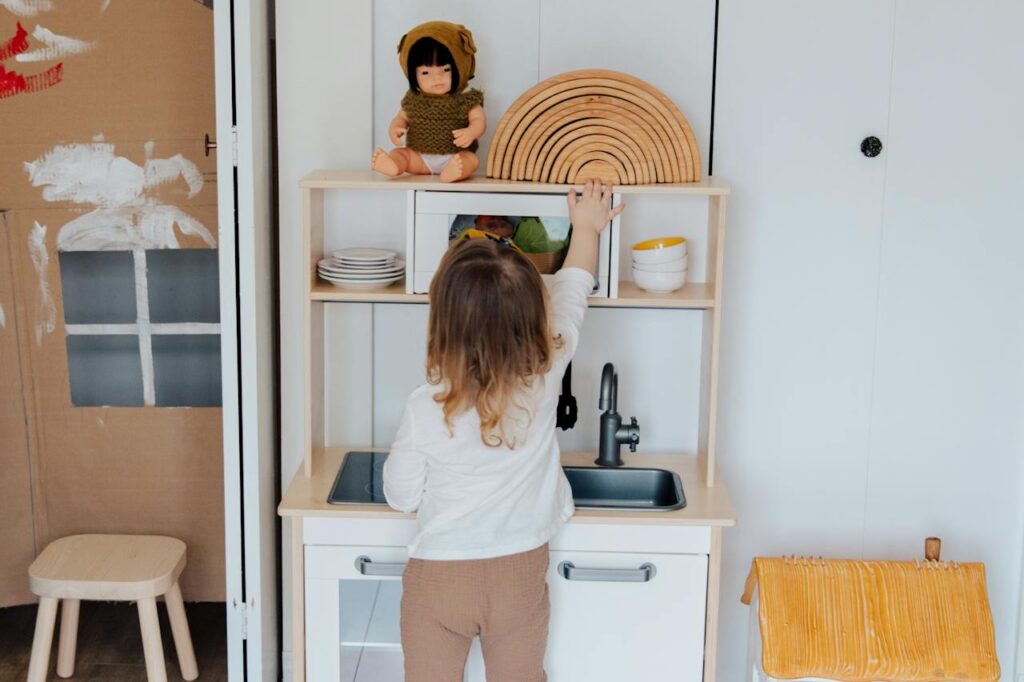
They learn to express their ideas, share responsibilities, and negotiate roles, fostering effective interpersonal communication. Furthermore, activities such as planning and coordinating a “meal” in the play kitchen encourage children to articulate their thoughts, preferences, and intentions, promoting language development.
As they engage in collaborative play, children naturally practice active listening, turn-taking, and conveying information, vital components of effective communication. By immersing themselves in the world of kitchen play sets, children not only develop a rich vocabulary related to food and cooking but also build the foundational communication skills essential for successful interactions in various social contexts.
To read more about the benefits kitchen play sets bring children, click here.
And now on to the benefits of building communication skills in children.
5 Ways To Improve Communication Skills in Children
We now look at the five points to consider when building communication skills to help make life more enjoyable inside and outside the homeschool classroom.
I. Audience
Before you think about choosing the words you will speak or write, consider who will be listening or reading what you have to say!
Your audience is a very important point to consider since if you don’t consider who will benefit from what you have to say, you might as well talk to a wall.
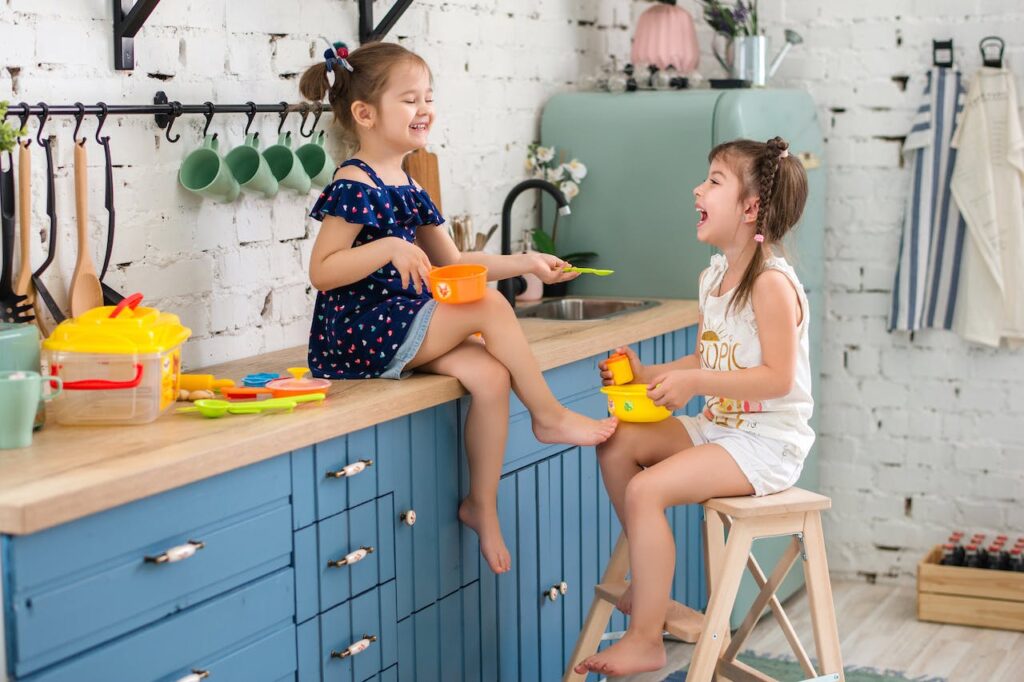
Words matter, so be careful how you put them together!
II. Word Choice
Kindness also is the first thing you should consider when choosing the words to say. The golden rule (treat others the way you want to be treated) applies inside and outside the homeschool classroom.
The words you choose to speak should be to make what you feel and what you think known to others, all while considering that you speak with the intention to benefit others (your audience) and not yourself.
And if you can’t find anything nice, you can simply restrict your words to be about the weather.
III. Intonation
Intonation is the rising and falling of the voice when a person speaks.
It’s what comedians (and teachers) use to bring laughter into people’s lives!
Intonation is an important point to consider in speaking because it adds to what a person says. What it adds is an implicit (unspoken) meaning to the explicit meaning the person speaking is trying to give to others.
In other words, the intonation we use while speaking lets others in on the emotions we feel as we speak, so they should recognize then how to respond in the right way.
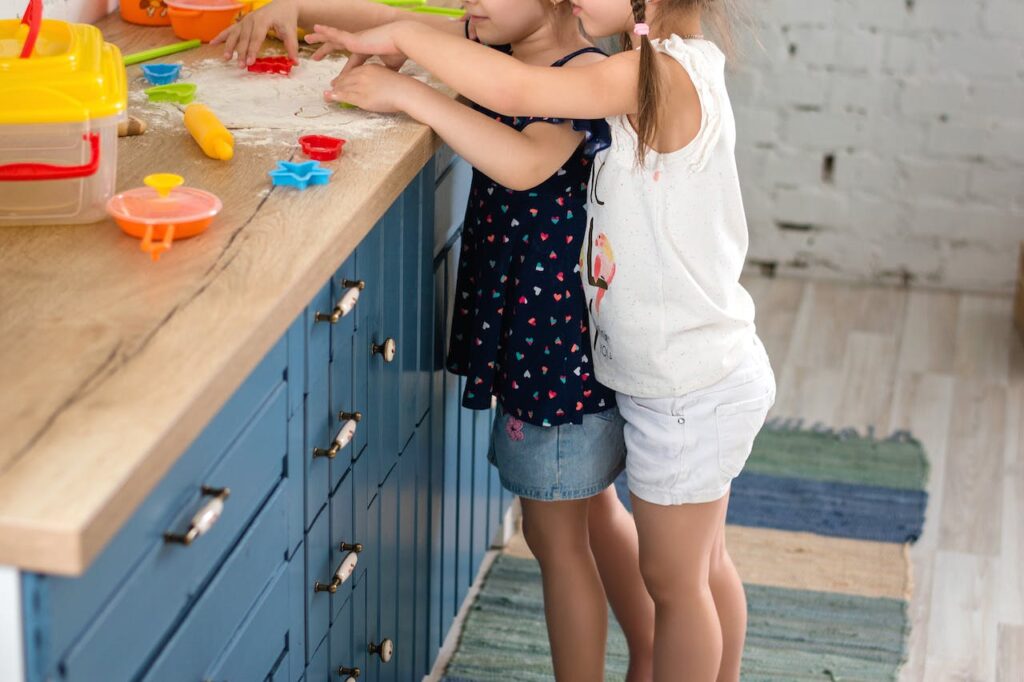
If people don’t easily understand what we are trying to communicate, then we need to check our word choice, and intonation.
IV. Clarity
Clarity in how we communicate is important to show so that misunderstanding do not happen.
There are a few things to check to see if you give clarity when you speak;
- first, is the information easy to recall/follow
- second, is the word choice appropriate
- third, is the intonation choice appropriate for easy communication
And lastly, a person’s body language can show others if they are interested or not, or a whole other range of emotions.
V. Body Language
Using one’s voice is only one way of communicating. Body language is a very important point to consider when communicating since a person’s actions can ‘speak volumes’.
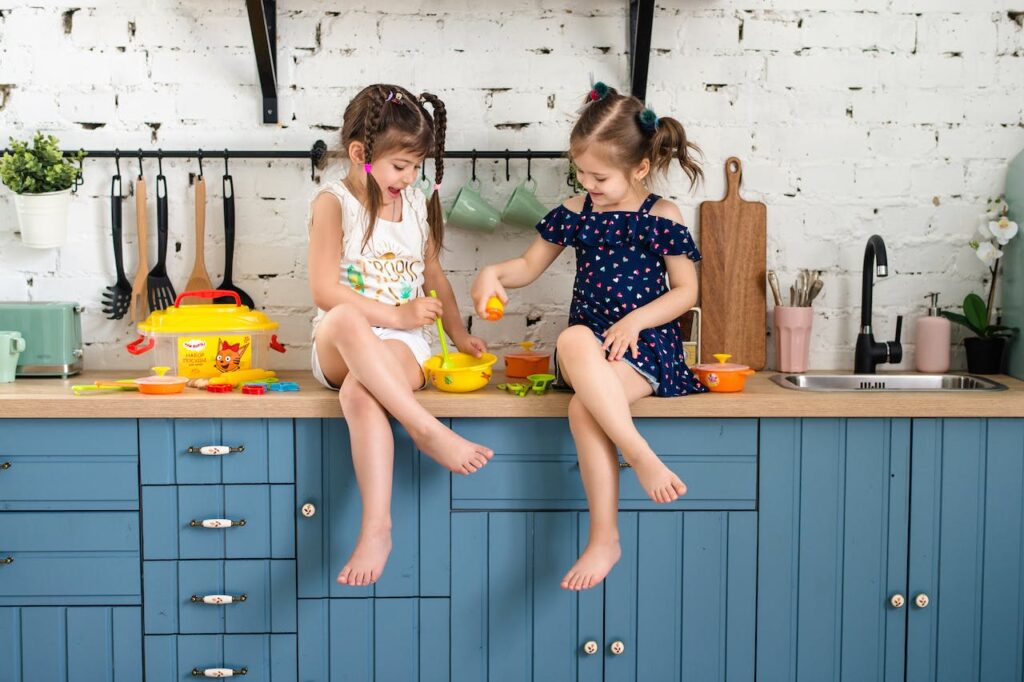
Body language can add more depth to verbal messages, by providing context and emotional cues that words alone may not convey.
Teaching children that a person’s gestures, facial expressions, and posture can significantly impact how their message is received, may help them gain a deeper understanding and connection when communicating with others.
Related Topics
Connect to our other pages as you navigate through our website. Explore what these pages have to offer you and you will be glad you did!
- Educational Benefits Kitchen Play Sets Bring Students
- Why Parents and Children Love Ahimsa Kitchen Products
- 5 Life Skills Needed for Homeschool Learning
- 5 Benefits Educational Videos Bring to Homeschooling
- 7 Ways to Build Recipes for Learning
- Teaching Kids to Master The Art of Communication
Join Us Today!

Final Thoughts…
Improving your communication skills inside and outside the classroom means you are aware that the points mentioned in this article help make a more positive impact on yourself and others in your daily life.
I hope you enjoyed reading this article and found it useful for building good communication skills that will help with your educational goals in learning for years to come!
Share Your Thoughts…
Leave us a comment below to let us know your thoughts on our ideas on the importance of building your communication skills in education.



